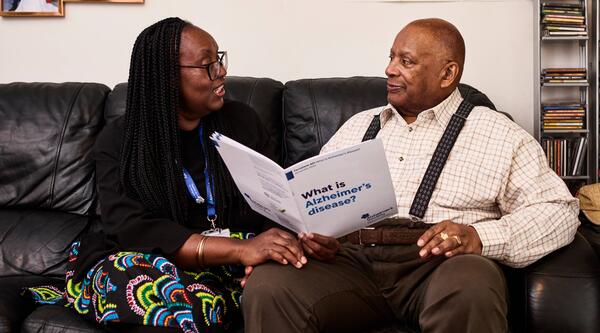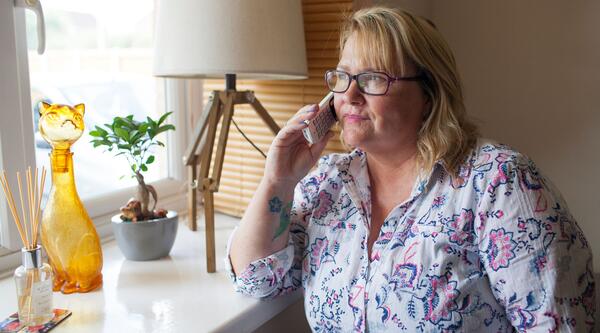Making Evaluation Count for people affected by dementia
Alzheimer's Society's interview-based approach to service evaluation involving people affected by dementia. Read our most recent report.
The purpose
Making Evaluation Count involves seeking feedback from people living with dementia and carers about the Alzheimer's Society services they receive from our support workers.
Support to participate is provided in the community or in other settings such as people’s homes.
Alzheimer's Society use this evaluation to help to make sure
- we are working in line with our values
- we are meeting the needs of people affected by dementia
- we are achieving our objectives, working towards our goals, and being effective.
Data collection approach
Making Evaluation Count is an annual, standardised evaluation project at Alzheimer’s Society run by the Evaluation and Impact team. A selection of people with dementia and carers who used our services each year are invited to participate in evaluation using a conversational approach.
These conversations may be one to one or in groups – this is dependent upon the way the service is delivered. For example, evaluation data collection for Singing for the Brain service is collected from groups of people with dementia and carers because the service is provided in a group setting.
We collect data face-to-face, or over the telephone, depending on what the person prefers.
The evaluation questions are designed to be collected in conversation with a trained staff member or volunteer.
Key findings from our most recent report
Last year, through the support of our service staff, we surveyed 1696 people affected by dementia who access our services. Of these, 545 were people living with dementia and 1,151 were carers who received one-to-one support in England, Wales and Northern Ireland.
The findings were positive as both people affected by dementia and carers had at least 78% agreement that the services they received were very good. Key outcomes were assessed to help us understand what aspects of support were met:
- I am informed - 96% said they were given useful information
- I am supported to manage - 92% said they feel more supported
- I have choice - 78% said they feel more confident to make decisions
This data was published 2023/24.
What changed for people with dementia
Services evaluation feedback from people with dementia has played a key role in Alzheimer's Society being able to evidence the differences our services have made to those who use them.
- It has provided important insight into gaps in our service offer.
- It has helped us understand how services can be improved.
- Evaluation data has informed Alzheimer's Society's Help and Hope strategy.
- Evaluation data is used by many directorates to inform their work.
Learning points
- Staff should be fully supported to use face to face methods where possible to get the best quality feedback
- It can be more useful to collect richer, good quality feedback from fewer people than a little bit of data from everyone.
- All opportunities are given to people with dementia to give their feedback as well as to carers.
- Making Evaluation Count has demonstrated that a move away from self-completion questionnaires has resulted in better quality feedback so we know who has answered the questions and we can ensure that people with dementia’s need are fully met.
- This process is not suitable for people with dementia who lack capacity to take part in the evaluation and/or are unable to answer questions.
Key contact to find out more
Email the Evaluation and Impact team: [email protected]





